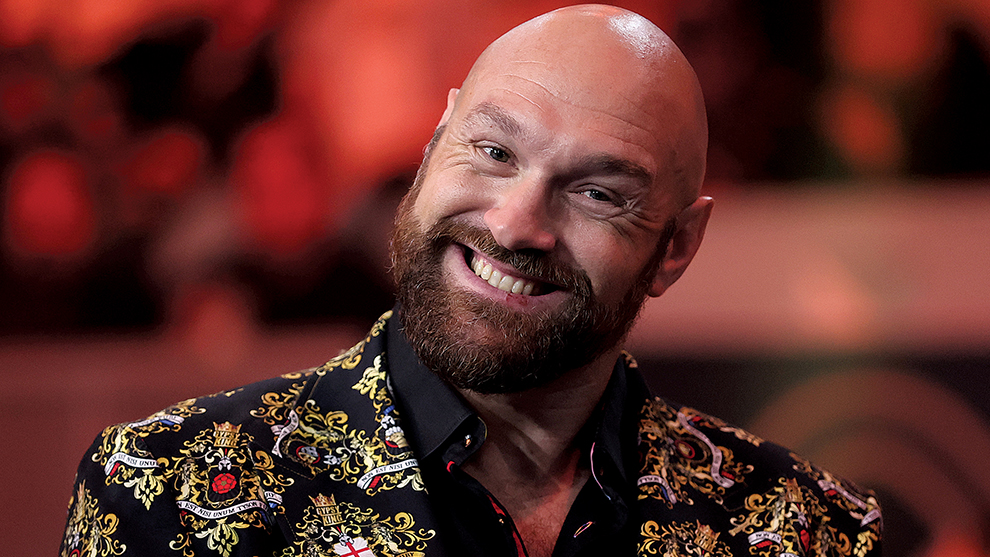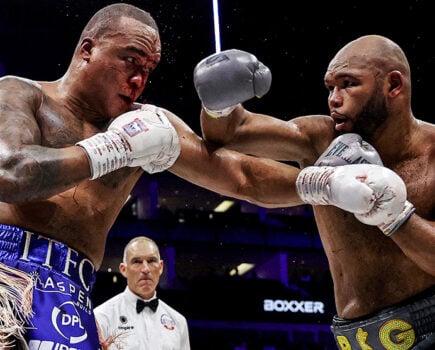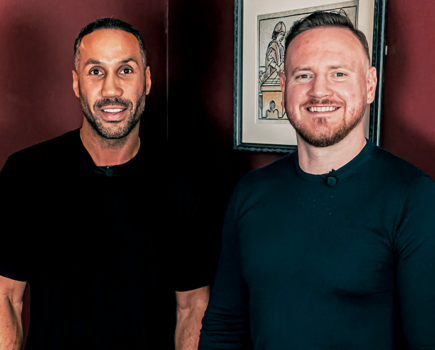TYSON FURY and Oleksandr Usyk will fight each other at last. It’s the most important contest the sport can make. What would ordinarily be a time of celebration, however, is tempered by a fear that it might all fall apart at any moment.
This is boxing, after all. We’ve been teased so many times in recent years that only the naive would allow themselves to reach for the champagne. Fury-Usyk has been close before, so too Fury-Anthony Joshua, so too Joshua-Deontay Wilder. Should we decide to add up the amount of time we’ve spent reporting on these elusive fights, chasing answers and writing copy, it would surely stretch to months and not days. With each passing implosion, the sense of disappointment is eased only by being conditioned to the inevitability of it all. It’s simpler to shrug shoulders than howl indignation. Ah well, we sigh, that’s the boxing business.
What’s always more bothersome is how much the image of the sport suffers when these bouts fall out of bed. The media at large, for example, will barely have noticed this latest announcement. At the very least, they will have thought twice about reporting on it. As we’ve stated on these pages several times, one has to go back an awfully long way – to 1999 and Lennox Lewis versus Evander Holyfield – for the last time the leading two heavyweights settled their differences inside a boxing ring.
Fury-Usyk is of course a natural fight that should already have occurred. But in boxing, there are no cup finals indelibly inked to calendars. With no schedule in existence and no obligation for the leaders to fight their closest rivals, we’re at the mercy of the fighters, and their volatile egos, to thrash out agreements between them.
But this time it does feel different. The announcement, that came on Friday September 29, landed without substantiated warning. “Delighted to finally get this fight signed,” Fury’s promoter Frank Warren stated. “This is the biggest fight that could possibly be made in our sport. The heavyweights always spark the imagination of fans and I have no doubt this will be the biggest boxing event of the century.”
Usyk’s team were in agreement. “I can’t believe it’s happening but it is,” said Alex Krassyuk. “Difficult to express my admiration for being part of the biggest heavyweight fight of the century.”
Perhaps in a nod to the paymasters learning lessons from previous capitulations, the negotiations and squabbles and purses and timelines were kept off social media and very much away from the glare of the public. Crucially, perhaps, rival promoters were not consequently invited to share their opinions on the matter. There were no teases from the respective teams that talks were taking place. What we should know by now is that social media, though a terrific tool to market fights that are signed and sealed, is a minefield that should be avoided when attempting to get bouts over the line in the first instance.
Boxing News understands that legally binding contracts have been signed and that only retirement from one of them could now prevent this from happening. Fury of course goes into an October 28 date with MMA star Francis Ngannou in a bout funded by Saudi Arabia’s The General Entertainment Authority [GEA] as part of Riyadh Season. Though we will not lower ourselves to deeming that affair remotely competitive, it’s certainly sensible to consider the possibility that Fury could emerge from such a potentially chaotic encounter with an injury or a cut.
Riyadh Season, which is also paying for Fury-Usyk, runs from October to March and though it’s understood that efforts will be made to get the fighters in the ring as quickly as possible after the Ngannou contest, there is scope for a five-month recovery period for Tyson if it is strictly necessary.
Oleksandr Usyk (SERGEI CHUZAVKOV/AFP via Getty Images)
So why announce it now? Fights being confirmed without dates attached to them always raise eyebrows, largely for reasons already explained. Boxing News understands that leading IBF heavyweight contender, Filip Hrgovic, was pushing hard for his mandated shot at Usyk, the holder of that belt. Only the confirmation of a ‘unification’ would stop the sanctioning body from enforcing that contest. Furthermore, with Hrgovic and his team being informed of plans to stage Fury-Usyk, it was only a matter of time before the news was confirmed elsewhere.
The reaction from Eddie Hearn was also encouraging. Rather than attempting to belittle the announcement, something he would have done in an instant if he felt it misleading, he responded by voicing his determination to follow his rival’s lead and make Joshua-Wilder, a contest that fell at its latest hurdle in recent weeks.
Though the Saudi Arabia setting is morally problematic, as with anything bothersome in boxing it seems increasingly futile to object. Particularly when sports with overriding governing bodies and barriers for entry in place – like football, tennis, golf, and motor racing – have long since been seduced by the riches available in the Middle East. In this instance, boxers who are eager to earn big are the only ones who can make a worthwhile moral stand. Regardless of our own personal opinions, the argument about athletes and their lack of conscience in these matters has always struck me as a little unfair.
Where boxing’s relationship with Saudi Arabia ultimately ends up, and for how long they’ll be willing to invest millions into the sport is unknown. But if they can make the fights that evidently can’t be made without them in the meantime, it’s fair to assume that fans will by in large turn a blind eye to human rights atrocities and the like. Boxing has never held a strong position when it comes to preaching virtue, let’s face it.
So, we take what we can get and Fury versus Usyk is quite simply as good as it gets in this imperfect sport.






